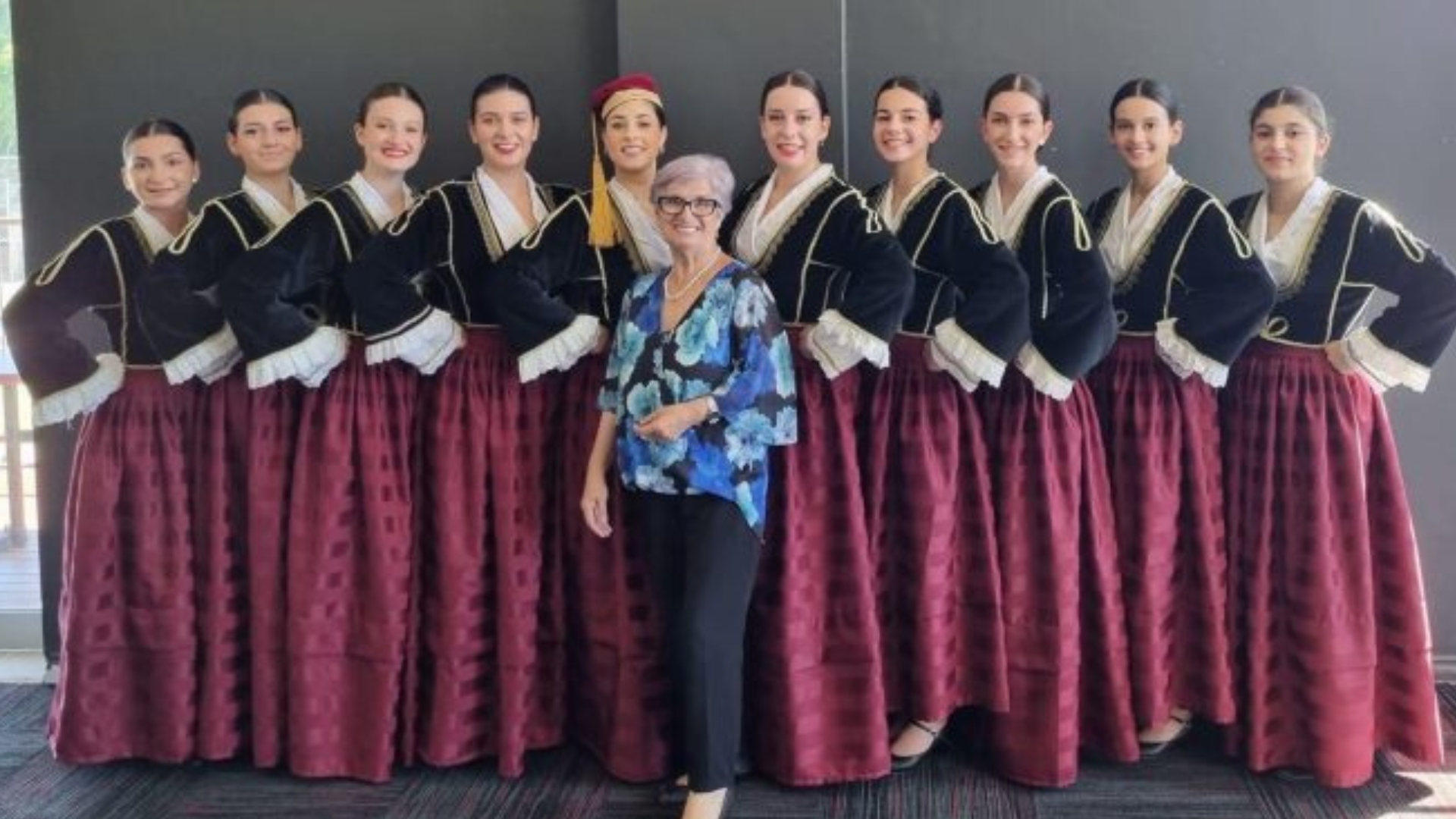Year after year, student after student, Paroula Thurban has built a legacy over the past 59 years as one of Sydney’s most well-known Greek dancing teachers.
She is an icon of the Greek community in Sydney, who has created a strong connection between the diaspora and Greek dancing.
‘My parents were amazing dancers’:
Paroula was born on the Greek island of Lemnos. Her parents were refugees from Asia Minor. She remembers them owning a fish restaurant before coming to Australia in her twenties.
“My parents were amazing dancers. At every festival they went too, people wanted to see them dance,” she tells The Greek Herald.
Paroula’s two brothers were also the first to dance the Zorba on Australian television with a music band.
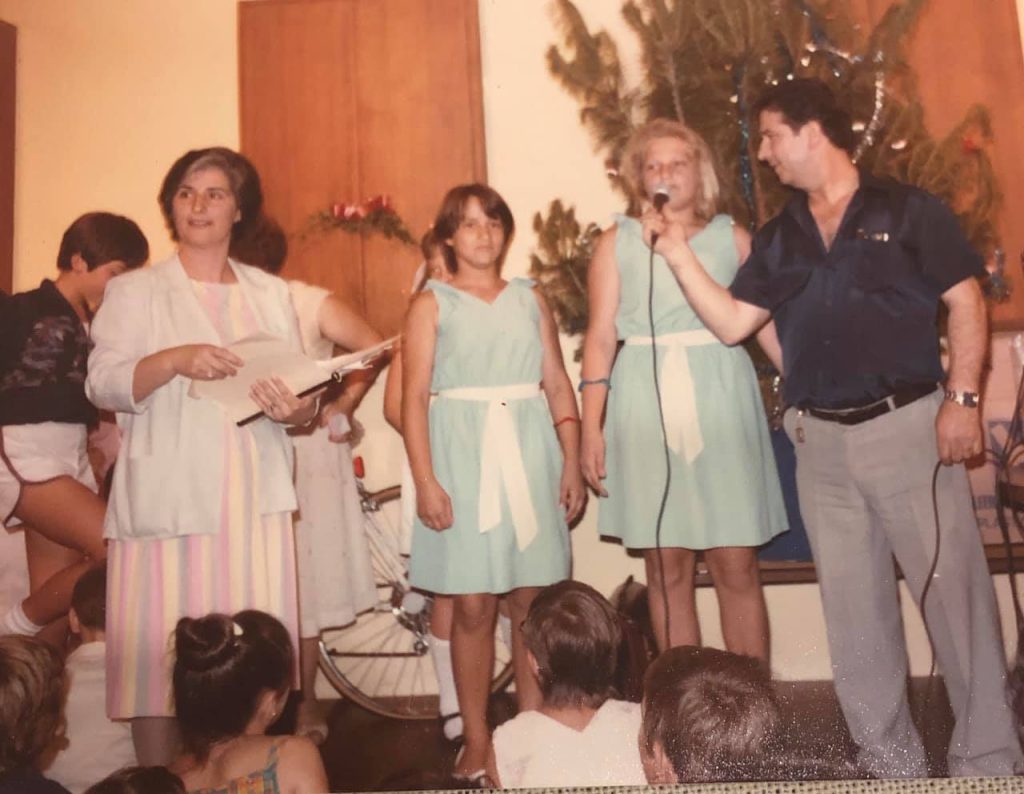
Bringing Greek dance to Sydney:
For Paroula herself, she began to teach the Greek language at a school run by the Greek Orthodox Community of NSW.
“In September, they gave me 15 students and at the end of the year, there were 45. That was the beginning for me to teach language. But it wasn’t enough,” she says.
“When we were finishing the lesson, I was gathering the chairs to do some dancing. Parents were coming to take their kids and I was dancing with them. It was 1964. That’s how my reputation started expanding in Sydney.”
Soon people started admiring her.
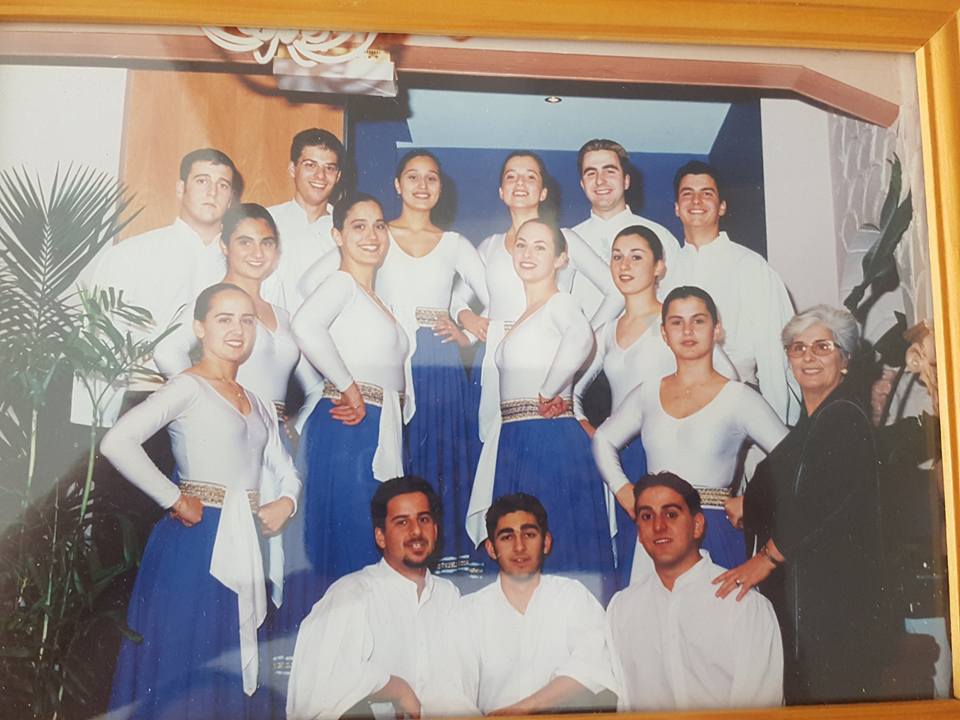
Paroula was presenting her young students at community events and parents were amazed by how many things their children could learn in an hour of dancing with her.
Eventually, she found herself a hall in Dulwich Hill, Sydney, and started teaching there every Saturday.
“There were so many kids that there was not enough space. I couldn’t teach them only in 1-2 hours, so I was starting at 8 in the morning and finishing at 3 in the afternoon,” she recalls.
“Every step that kids do, it brings them closer to Greece. In a society which is not traditional, it is hard to teach traditional dances. So I had to find a way to put in kids’ souls the love for language, dancing and singing.
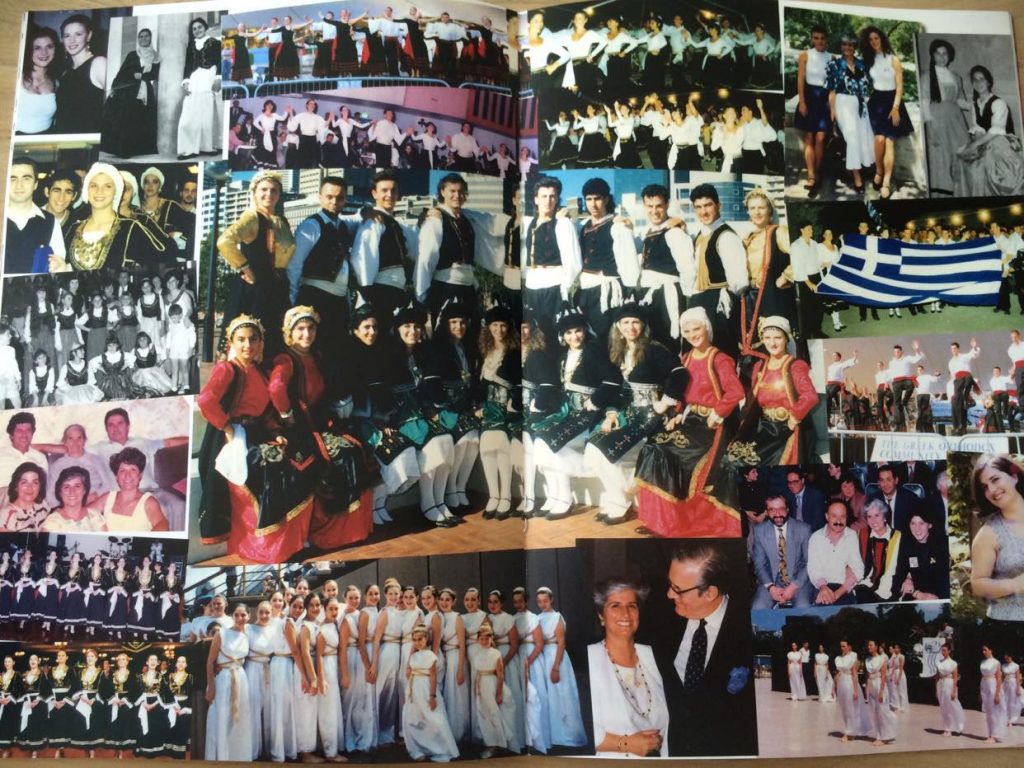
“I started choosing dances with nice singer’s voices to make lessons pleasant. Even traditional costumes were chosen with great care and love. I wanted to show the beauty and ‘leventia’ of the dancers and to cause admiration. But above all, I wanted to make them dancers and to transmit the love I was feeling for dancing, to kids too.”
Paroula was the first to teach the Zorba in Sydney and despite the dance being so popular, some people said that she was not teaching traditional dances.
“I was choosing good songs to get into the kids’ souls,” she says.
Her husband, a German who loved the Greek culture, used to drive her and the students to festivities by the Greek community. And today, her daughter also teaches at All Saints Grammar school in Belmore.
All these years, Paroula has devoted her life to Greek dancing.
“I was missing Greece a lot – the sun, my island, sea, loved faces – and I think carrying this heritage in its different aspects, I started building slowly my little Greece, my new home,” she says.
‘There is only one Paroula’:
According to Paroula, the biggest mistake that most teachers make is that they don’t want to teach the secrets of dancing to others.
“I was bringing teachers from Greece, Macedonia, Central Greece, the Greek islands, to learn the dances. But I was gathering everyone who was interested in learning something better. I think is really important to let teachers continue your work,” she says.
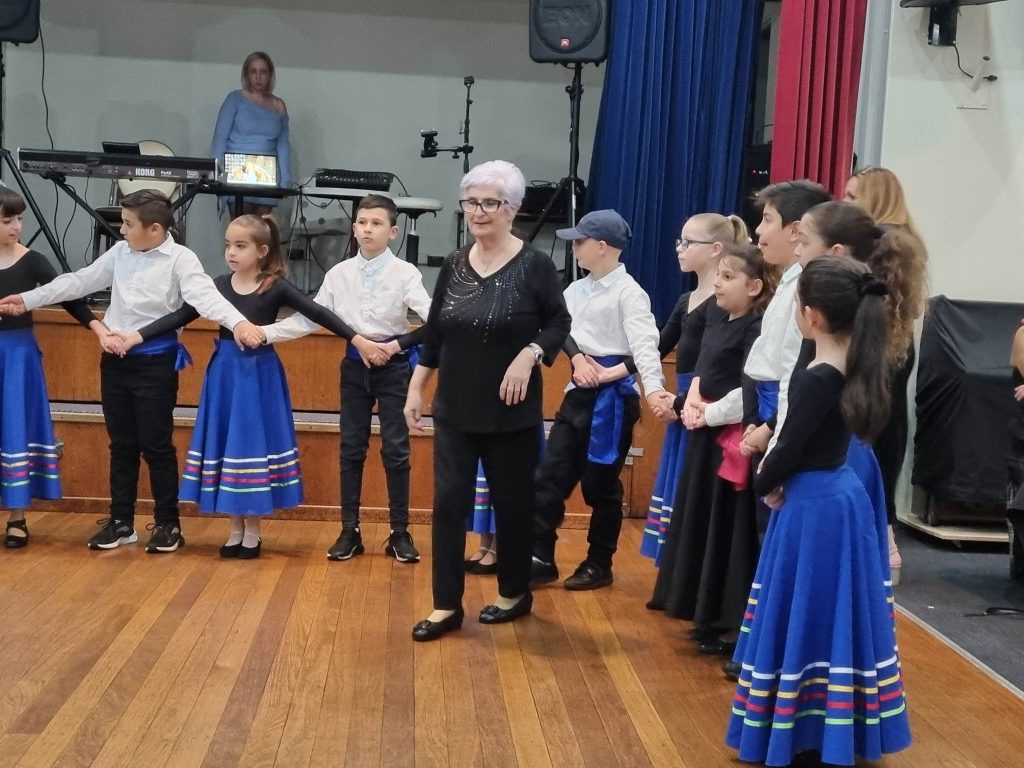
Her close to 60 year contribution to the Greek community’s culture has been recognised by the NSW government with an award. This recognition was really important to her.
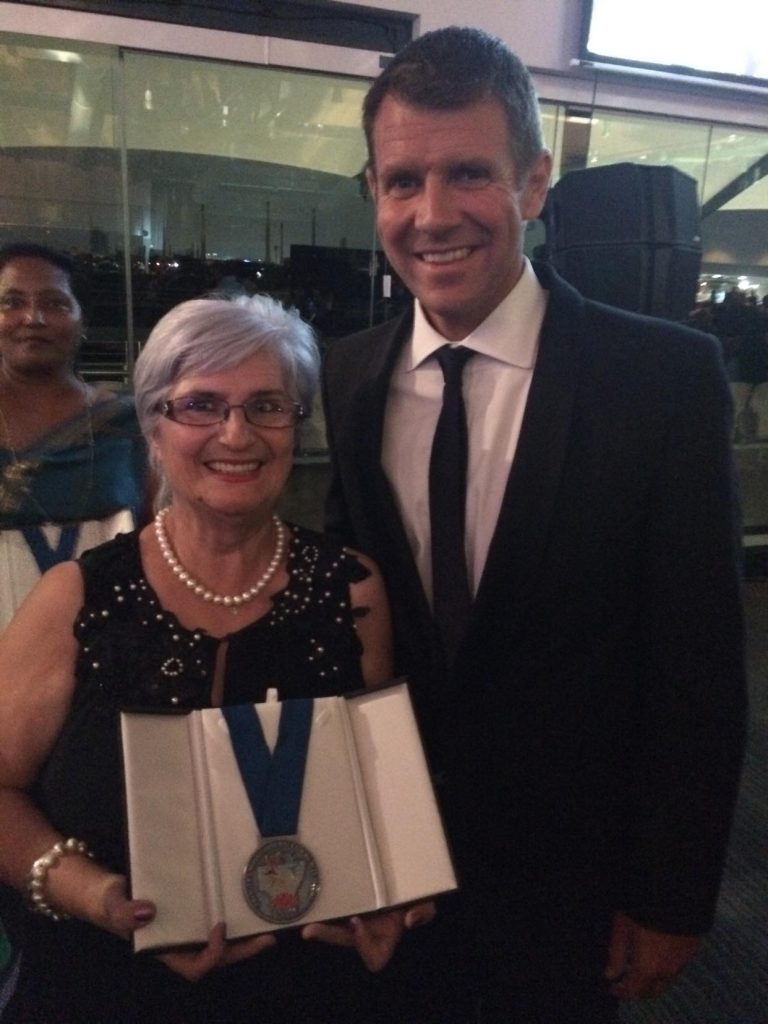
Apart from this, there are also many other memories that she never forgets either. Paroula recalls one day when she danced at her high school in Lemnos with young dancers she had travelled with from Australia. Her dancing group was invited to perform in Lemnos by a Greek minister.
Paroula remembers how, in the middle of dance, a woman stood up and shouted, ‘there is only one Paroula.”
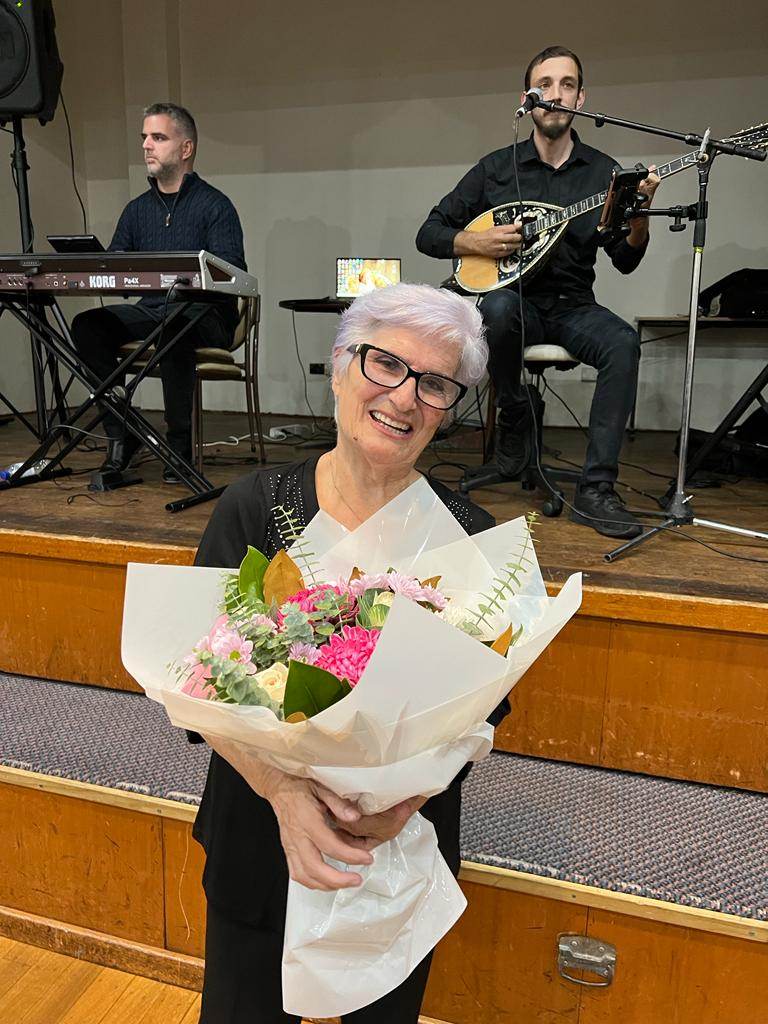
“You cannot forget it,” the dance teacher concludes. “Things like that stay in your mind and you say, ‘At the end I achieved something’.”
